Is pickleball an Olympic sport? The quest for Olympic glory
In recent years, pickleball has captured hearts and courts worldwide, with enthusiasts embracing its unique blend of tennis, badminton, and ping pong. As a rapidly growing sport, questions about Is Pickleball an Olympic Sport have surfaced, fueling hopes and dreams among players and fans alike. Will this dynamic sport find its place on the grand stage of the Olympics? As we unpack the factors influencing its journey toward Olympic recognition, we will delve into its soaring popularity, challenges ahead, and pathways to future greatness. Join us as we explore whether pickleball can elevate its game to Olympic heights.
The pickleball phenomenon: a sport on the rise
Pickleball is more than just a game; it’s a cultural movement sweeping through communities, particularly in the United States. Since its inception in the 1960s, it has transitioned from backyard fun into a competitive sport, capturing the attention of diverse demographics. Statistics illuminate this growth: in the United States alone, the number of pickleball players has skyrocketed, as courts spring up in parks and recreational centers across the nation. Recent estimates suggest that there are over four million active players in the U.S. alone, and many more are engaging with this sport globally.
The allure of pickleball lies in its accessibility. Participants of all ages families, seniors, and young adults are finding joy in its relatively low barriers to entry. The game requires minimal equipment and can be played both indoors and outdoors, making it adaptable to various settings. This quality has contributed to its reputation as one of the fastest-growing sports. According to the Sports & Fitness Industry Association, pickleball participation has increased by over 21% annually since 2019, reflecting not just a trend but a lasting shift in recreational preferences.
Furthermore, media coverage is increasingly spotlighting pickleball, with tournaments broadcasted and professional leagues emerging. The mixture of fun, strategy, and exercise resonates powerfully with a wide audience, as players bond over the game’s social aspects while honing their competitive edge. In much the same way that popular sports can evoke a sense of belonging and community, pickleball creates connections that bridge generations, making it a sport for everyone not just the elite player.
Pickleball’s meteoric rise in popularity
- Statistics:
- Over 50 million players in the U.S.
- Annual growth rate exceeds 21% since 2019.
- 60 countries hosting pickleball communities.
- Appeal:
- Available for all age groups.
- Minimum equipment needed.
- Can be played in diverse environments (indoor/outdoor).
- Available for all age groups.
- Media Attention:
- Emerging professional leagues.
- Increasing broadcast coverage of tournaments.
- Celebrated enrollment in youth programs.
- Emerging professional leagues.
- Over 50 million players in the U.S.
While the sport’s expansion offers a promising horizon, there is an undercurrent of aspiration among players that propels them toward the ultimate goal: Olympic inclusion.
Is Pickleball an Olympic Sport?
Pickleball is not currently an Olympic sport, and its presence will not be seen in the upcoming Los Angeles 2028 Olympic Games. One of the primary barriers to its inclusion lies in the fact that the International Olympic Committee (IOC) requires a sport to be governed by a single recognized international federation. Presently, multiple governing bodies exist for pickleball: the International Pickleball Federation (IPF), the World Pickleball Federation (WPF), and the Global Pickleball Federation (GPF). A consolidation of these organizations is deemed necessary for the sport to gain proper IOC recognition.
The allure of the Olympics for pickleball players
The desire for Olympic recognition is not simply a quest for glory; it represents a myriad of opportunities for players and the sport itself. For athletes, participating in the Olympic Games is the culmination of years of dedication and hard work. The opportunity to compete on an international stage can catapult individual players to fame, granting them not only recognition but also potentially lucrative sponsorships and endorsements. Prominent figures in the sport, from amateur enthusiasts to seasoned competitors, share a dream intertwined with the thrill of representing their country, much like the athletes they’ve admired throughout their lives.
Including pickleball in the Olympics also promises to elevate the sport’s profile: sponsorships could flow in, infrastructure could be developed, and grassroots programs could flourish. With the Olympic emblem associated with pickleball, local clubs could witness a surge in interest from aspiring young athletes eager to take part. The Olympics serve as a massive marketing platform, capable of attracting new players creating a cycle of growth that benefits everyone involved.
Moreover, the allure of the Olympic stage nurtures a community spirit. As players rally around a common goal, they forge bonds that extend beyond matches. Passionate fans engage in friendly rivalries, celebrating each other’s successes and supporting one another through losses. This collective enthusiasm enhances the sport’s appeal, drawing in new participants and forging lasting connections, further solidifying pickleball’s place in the lush tapestry of sports culture.
Aspirations and benefits of Olympic inclusion:
- Global Exposure: Participation can vastly increase the sport’s visibility.
- Athlete Recognition: Competing as an Olympic sport can elevate player status.
- Sponsorship Opportunities: Attracting sponsors can result in financial support and investment.
- Community Growth: Strengthening ties among participants, clubs, and fans enhances the sport’s appeal.
The path to Olympic inclusion: meeting the IOC’s standards
Despite the enthusiastic backing of the pickleball community, the path to Olympic inclusion is fraught with challenges. The International Olympic Committee (IOC) imposes stringent criteria for new sports seeking recognition. A primary requirement is substantial international participation. Men’s competitions must take place in 75 countries across four continents, while women’s competitions require presence in 40 countries across three continents. As of now, pickleball is played in approximately 60 countries, which indicates growth but still falls short of meeting the IOC’s specified benchmarks.
Equally important is the need for a single governing body recognized by the IOC. This requirement represents one of pickleball’s most significant challenges, as multiple organizations, such as the International Pickleball Federation (IPF) and the World Pickleball Federation, currently represent the sport. Navigating the complexities of unifying these various bodies is essential for gaining IOC recognition. The merger of governing entities would not only streamline operations but also elevate pickleball’s standing in the sport’s global landscape.
Additionally, the IOC’s regulatory framework mandates adherence to anti-doping policies, youth appeal, and comprehensive media interest. Each aspect is vital for establishing credibility and ensuring the sport aligns with Olympic values. As the pickleball community continues to advocate for recognition, aligning with the IOC’s extensive criteria will be essential to propel the sport closer to Olympic competition.
IOC criteria and requirements:
- International Participation:
- Men’s competitions: at least 75 countries across four continents.
- Women’s competitions: at least 40 countries across three continents.
- Governing Body:
- Must have a single recognized international organization.
- Adherence to IOC Standards:
- Compliance with anti-doping measures.
- Demonstrating significant youth appeal and media interest.
- Compliance with anti-doping measures.
- Men’s competitions: at least 75 countries across four continents.
Where pickleball currently stands
The current landscape of pickleball paints a picture of growth and potential yet underscores the considerable challenges that lie ahead. While approximately 60 countries are home to pickleball players, this remains insufficient for IOC eligibility. Membership in the International Pickleball Federation stands currently at around 45 countries, highlighting the necessity for increased outreach and player participation in key regions to secure broader acceptance.
Despite these hurdles, the landscape is not entirely bleak. Initiatives to promote the international expansion of pickleball are underway, with champions of the sport advocating for its inclusion in upcoming events and tournaments. Collaboration among wider networks of players, sponsors, and media will play a crucial role in fostering international acceptance. Continued advocacy will be essential to solidifying national federations worldwide, which would empower localized governance.
As of now, with no formal recognition from the IOC, the road ahead is challenging, yet resolute. The pickleball community remains optimistic about its prospects, particularly with the exciting potential for expansion. By strengthening its international reach and establishing a unified governing body, pickleball may yet knock on the doors of the Olympic stage, awaiting that thrilling opportunity to shine under the Olympic rings.
Current standing of pickleball:
- Countries and Membership:
- Approximately 60 countries involved.
- 45 countries are members of the International Pickleball Federation.
- Challenges Ahead:
- Need to expand player base in existing markets.
- Unification of governing authorities.
- Need to expand player base in existing markets.
- Approximately 60 countries involved.
Pickleball in the Olympics: a realistic timeline
Debunking the 2028 Los Angeles Olympics myth
Every grassroots movement thrives on hope, and enthusiasm often leads to the spread of rumors, such as the speculated inclusion of pickleball in the 2028 Los Angeles Olympics. Unfortunately, this speculation presents a significant misunderstanding of the IOC’s timelines and processes. The rigorous review and consideration for adding new sports to the Olympic program spans years even decades in some cases. Given the established sports roster for the LA 2028 Games, the likelihood of accommodating an entirely new sport is highly improbable.
Diving deeper into the IOC’s operational structure reveals a system that favors proven sports with established international bodies and a widespread player base. As pickleball continues to strive for growth, the aspirational vision for Olympic presence requires patience and long-term dedication. It is a reminder that while the journey may be slow, it is the unwavering commitment to excellence that will ultimately guide the sport toward Olympic inclusion.
2032 and beyond: a window of opportunity?
Looking ahead, the prospects for pickleball’s Olympic aspirations may find fertile ground at the 2032 Brisbane Olympics or potentially thereafter. This timeline demands an unwavering focus on meeting the essential criteria set by the IOC and solidifying the sport’s global presence. With increasing participation, international growth, and advocacy efforts, the seeds of Olympic dreams may sprout sooner rather than later.
As organizations merge and evolve, showcasing the competitive nature of pickleball through high-stakes tournaments may amplify its appeal. Grassroots initiatives promoting the sport among youth, fostering professional leagues, and captivating media attention serve as valuable conduits connecting players with the Olympic vision. With concerted efforts to achieve sustainability and professionalism, the groundwork laid between now and 2032 could culminate in a momentous breakthrough.
Timeline for strategic pursuits:
- 2028 Olympics: Unlikely but foundational groundwork.
- 2032 Brisbane Olympics: Potential entry if goals align and challenges overcome.
- 2036 and Beyond: Longer-term perspective, fostering growth and legacy.
Bridging the gap: strategies for Olympic success
In order to secure a place for pickleball at the Olympics, a multifaceted strategy targeting international growth, enhancing the sport’s image, and cultivating youth engagement must be put into action. As each piece of the puzzle falls into place, it brings the community closer to Olympic aspirations.
Expanding pickleball’s global footprint
A robust international growth strategy will be paramount for pickleball’s future. By actively promoting the sport in emerging regions and seeking partnerships with both local and international organizations, pickleball can burst into markets that presently remain untapped. Hosting international tournaments can garner media attention, promote competition, and generate enthusiasm among local communities.
Countries such as Canada, Australia, and others have already begun to adopt and adapt pickleball, showcasing its versatility and appeal. By engaging in grassroots initiatives, incentivizing local clubs, and capitalizing on the world’s increasing love for sport, pickleball can fortify its status on the international stage.
Enhancing pickleball’s image
To prioritize clarity and professionalism, establishing a clear identity and promoting high-level tournaments will elevate pickleball’s perception as a competitive sport. Increased media coverage enhances visibility, spurring interest and attracting sponsorships. This aspect of professionalization can play a pivotal role in transforming the narrative around pickleball, showcasing its dynamism as an exciting spectator sport.
The impressive prize money awarded in professional pickleball tournaments reflects growing investment and interest. As viewership rises and talented players capture the attention of spectators, endorsements and sponsorships will likely follow suit, promising a bright future.
Cultivating youth appeal
Engaging younger generations is a crucial strategy for securing the sport’s long-term success. By developing youth programs that introduce pickleball into school curricula and hosting exciting events and competitions, the next generation will be inspired to join the ranks of pickleball enthusiasts. Creating dynamic content and utilizing platforms that resonate with young athletes can foster connections, ensuring that the sport remains relevant and accessible.
Strategies for Olympic success:
- Expanding Global Presence:
- Promote pickleball in new regions.
- Establish partnerships with international organizations.
- Host international tournaments to amplify presence.
- Enhancing Image and Professionalism:
- Increase media coverage and sponsorship opportunities.
- Showcase high-level tournaments to attract viewers.
- Increase media coverage and sponsorship opportunities.
- Cultivating Youth Engagement:
- Develop youth programs interwoven with school initiatives.
- Create engaging content tailored for younger audiences.
- Develop youth programs interwoven with school initiatives.
- Promote pickleball in new regions.
Pickleball’s Olympic future: a collaborative effort
As pickleball inch closer to Olympian heights, a collective effort from players, organizations, and passionate fans will be essential. Active advocacy and commitment to growth will galvanize the sport’s dream of Olympic inclusion.
The role of the pickleball community
Advocacy and collective action represent powerful forces in championing pickleball’s case for Olympic recognition. Every player, from neighborhood enthusiasts to seasoned competitors, is part of this vibrant community, and their voices can resonate far and wide. Participation in local and national initiatives fosters awareness and creates a sustainable culture of support around pickleball.
Players must rally together to encourage participation and inspire younger generations to embrace the sport. By showcasing the joy and camaraderie pickleball offers, enthusiasts fuel the desire for growth, ultimately paving the way for recognition at the highest levels.
Embracing the journey
The journey toward becoming an Olympic sport symbolizes passion, dedication, and perseverance. It requires unity and commitment across the pickleball community. While the goal of Olympic dreams may seem distant, the excitement and camaraderie found within pickleball’s courts offer an irresistible journey worth taking one that can inspire generations to come.
In conclusion, though challenges remain on the path to Olympic recognition, there is undeniable potential for pickleball to carve its place in the annals of sporting history. Embracing the journey, celebrating the sport, and fostering connections within the community will ensure that pickleball’s odyssey continues toward its Olympic aspiration. With shared dreams and a relentless spirit, the future of pickleball shines brightly on the horizon.


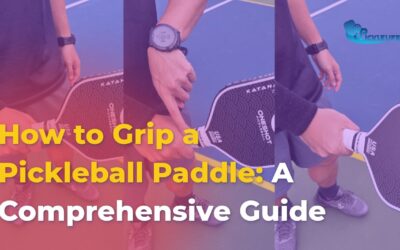
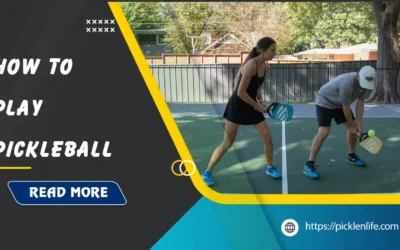
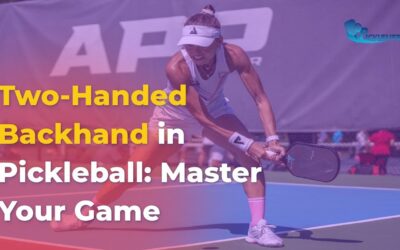
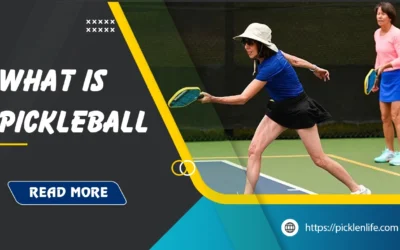
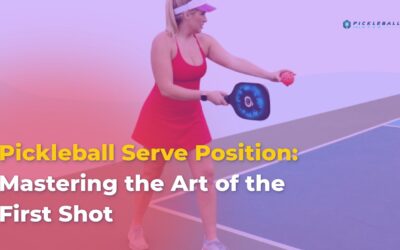


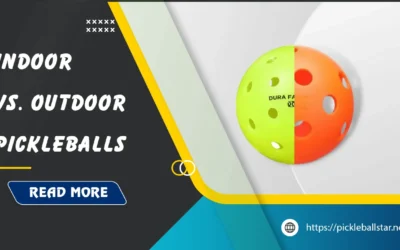
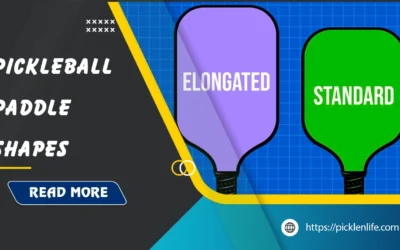
Write Your Review
No reviews yet. Be the first to share your experience!